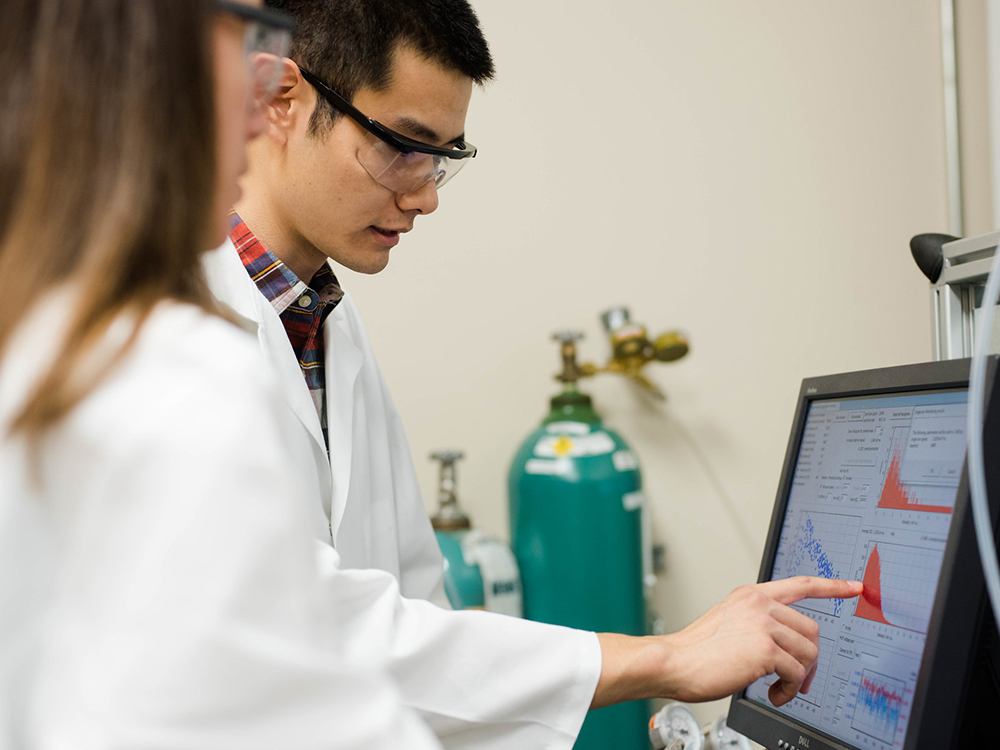
Theory and simulation research aims to develop and use theoretical tools to predict the properties of materials, to understand molecular-scale chemical processes, and to design, analyze, and improve protocols for manufacturing new products.
Our department has the largest and most productive theory and simulation program in the country. Our expertise covers a wide variety of state-of-the-art methods including first-principles quantum mechanical calculations, particle- and field-based approaches to statistical mechanics, molecular and Brownian dynamics simulation algorithms, multi-dimensional optimization techniques, and continuum-level theory and simulation. To address problems where multiple length and/or time scales are relevant, we integrate these approaches with appropriate coarse-graining strategies.
The interdisciplinary spirit at the university shines through collaborations involving first-rate experimental and modeling groups. Our joint efforts allow faculty members and graduate students to explore exciting fundamental problems in biological, physical, and engineering sciences that allow for breakthroughs on important technological problems. Recent examples include molecular-level design and synthesis of high-value-added composite materials, simulation of nanoscale imprint processes for semiconductor technologies, and modeling of high-concentration antibody solutions for subcutaneous drug delivery.






